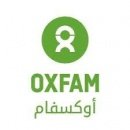Inputs and Equipment Availability Study
Analysis of the farming and micro processing inputs and equipment needs and availability in the Gaza Strip market
Consultancy Advertisement
Background
The Economic recovery in Gaza Strip (ERGS) project has run for the last 5 years in two phases. The project is funded by DANIDA, the Danish international development agency and is working across the Dairy, Vegetable Processing and the ICT sectors, with an integrated policy element. The interventions in phase one have shown that targeted support within the dairy and food processing sector to strengthen management skills, product diversification, improved marketing and market linkages have translated into significant increases in production and turnover with the targeted businesses. The focus of the second phase of the ERGS project is scale up and replicability based on the lessons learned in phase one
Purpose of the study:
Analysing the availability of the related raw materials and equipments required at each stage of the supply chain and any known barriers and opportunities that may be encountered or leveraged to support growth of farming and micro processing businesses in the Gaza Strip. The study will focus on the availability and cost of key raw materials and processing equipments and make recommendations for reducing or removing barriers and taking advantage of opportunities including industry collaboration for bulk purchasing and the potential to improve the local production of the identified raw materials and processing equipments for micro, small, medium and large businesses.
The valuable information of this study will guide local business in terms of market potential and in systematically closing the supply/demand gap within Gaza for these sectors and in the process to strengthen and grow the local economy.
Tasks and deliverables:
The technical consultant is expected to deliver the following Tasks:
-Synthesise existing information currently available in Gaza from Industry associations, PFIU, PalTrade, Chamber of Commerce, Ministries, INGO’s and other related organisations.
-Gathering primary data from producers and processors manufacturing the targeted commodities (agriculture, food processing and dairy) utilizing the most appropriate data gathering methodologies.
-For each designated products define the nature, amount/capacity, cost and specification of the key raw materials and equipments required to produce the end product.
-Determine for each raw material or piece of equipment (at all quantities and sizes needed for micro, small, medium and large manufacturers) the ease of availability within Gaza and the relative cost of local raw materials and equipment against what these would cost in Ramallah/Jerusalem/Tel Aviv and Egypt.
-Highlight any important barriers found to availability and cost including length of delays if machines have to be brought into Gaza. This includes analyzing the dual use items list influence on the targeted sectors productive inputs availability.
-Be careful to note any comparison between locally produced raw materials and equipments and that which is brought in terms of quality, capacity, yield/speed and reliability - for example a cheaper local alternative may not be as productive or result in a good tasting product.
-Identify opportunities for raw materials and equipments that could be grown, or made in Gaza without reducing the competitiveness of local production.
-Working together with Oxfam, Project Partners, PalTrade and PFIU consider what advocacy activities would best support the development of greater production capacity for dairy and agricultural food production in Gaza. Carefully consider that giving away too much information through the advocacy efforts could result in actions which may increase the barriers for particular raw materials and equipment into Gaza.
-Make recommendations in terms of the key learning gained from the study based on the available strengths and opportunities, in addition to the required policy support in terms of action that could be taken by the market players, local authority, donors and industry associations to encourage growth in the local production of these raw materials or equipments. An example of the type of action that could be taken is enabling incentives, smart subsidies and technical support and private sector linkages to encourage local production.
-Consider along with PFIU and PITA how the information that you have gathered could be made available to prospective processors and producers through different means e.g. mobile application showing the raw materials and equipment needed for these processing businesses, what it costs and where to get it. This should be designed to link to the PFIU market and production information hub.
The technical consultant is expected to submit the following deliverables:
-Report on findings (approximately 15 pages) including recommendations.
-Annex of summarised information tabulated in a simple to understand format for transfer to the industry association market hub website.
-Annex of an asset based action plan with identifying entry points to cope with the scarcity of materials and equipments in Gaza.
-A dissemination workshop to share the findings of the study with Oxfam, partners and relevant market players.
Qualifications
The ideal consultant will have:
-Proven professional research experience within Gaza context.
-Good knowledge and understanding for agriculture, food processing and dairy sectors in the Gaza Strip including each sector’s strengths, weaknesses and asset based opportunities.
-Proven record in the development of robust data gathering tools, analyzing and interpretation.
-Good knowledge and extensive practice applying participatory approaches, qualitative and qualitative methods to assess the availability of productive inputs within the entire targeted value chains.
-Good understanding of economic development work via participatory market system development approach.
-Experience of integrating gender dynamics within participatory data collection.
-Relevant geographical experience in the Gaza Strip, ideally including previous work in the Gaza Strip and familiar with women reality there.
-Ability to communicate fluently and write strong reports in English and Arabic.
- Ability to propose efficient and effective team composition taking into consideration the social, cultural, environmental and political/security issues.
-Ability to work with a diverse team and under pressure to produce agreed deliverables in a timely manner.
-The consultant must be collaborative, willing to share thoughts, ideas, and make constructive criticism.
How to Apply:
Qualified candidates and teams are requested to submit A cover letter of no more than 1 page introducing the consultancy institute/team and how the skills and competencies described above are met, Proposed evaluation team leader’s and team members’ CVs, A proposal on how s/he will approach this task (no more than 5 pages) including a technical offer (key considerations, proposed outline methodology, deliverables and detailed schedule, roles of different team members proposed) along with a detailed breakdown of financial proposal/budget and other documents as detailed in the TOR to
no later than 17th November 2016.
Jobs.ps, Ltd. All Rights Reserved.







